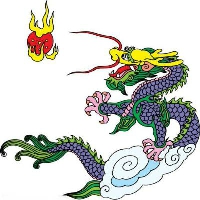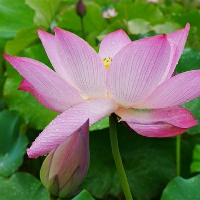War and Peace(战争与和平)
generally, war is repugnant, but peace is welcome。while peace is the ultimate goal of all of our undertaking in this world, war has been inevitable in the course of human civilization。 does man have an innate taste for war? or is it just an acquired scheme learned from human society? we only know
generally, war is repugnant, but peace is welcome。 while peace is the ultimate goal of all of our undertaking in this world, war has been inevitable in the course of human civilization。 does man have an innate taste for war? or is it just an acquired scheme learned from human society? we only know
that there hasn"t been any period in the history during which the world was really at peace。 human beings pursue peace and prosperity through the establishment of families, communities, and nations。 why should we let all these be destroyed by wars?
that there hasn"t been any period in the history during which the world was really at peace。 human beings pursue peace and prosperity through the establishment of families, communities, and nations。 why should we let all these be destroyed by wars?
to reduce the possibility of war to the lowest extent, i have two suggestions。 first of all, education should be consolidated to eliminate the brutality and beastliness in human nature。 knowledge derives from education and is a surer road to wisdom。
to reduce the possibility of war to the lowest extent, i have two suggestions。 first of all, education should be consolidated to eliminate the brutality and beastliness in human nature。 knowledge derives from education and is a surer road to wisdom。
wisdom enables us to distinguish right from wrong。 it also teaches us restraint and tolerance, two effective means of preventing wayward killing and destruction。 another cure is religion。 most religions in the world advocate philanthropy and forgiveness, which dissolve hatred and revenge。 consequently, education and religion working side by side can transform a barbarian into a civilized person。 with wisdom and love, the human race as a whole will detest war and embrace peace。
wisdom enables us to distinguish right from wrong。 it also teaches us restraint and tolerance, two effective means of preventing wayward killing and destruction。 another cure is religion。 most religions in the world advocate philanthropy and forgiveness, which dissolve hatred and revenge。 consequently, education and religion working side by side can transform a barbarian into a civilized person。 with wisdom and love, the human race as a whole will detest war and embrace peace。
战争与和平
war and peace
一般而言,战争令人憎恶而和平受人欢迎,虽然和平是人类世界上一切作为的最终目标,但战争在人类文明的过程中,始终无法避免。战争是人类天生的喜好,还是人类后天在社会中习得的伎俩?我们只知道,在历史上从来没有一段时期世界是真正处于和平状态。人类通过家庭、社会以及国家的构建来追求和平与繁荣,又怎么能让战争摧毁这
generally speaking, war is abhorrent and peace is popular. although peace is the ultimate goal of all actions in the human world, war can never be avoided in the process of human civilization. is war a natural preference of human beings or a trick acquired by human beings in society? we only know that there has never been a period in history when the world is really at peace. how can war destroy peace and prosperity through the construction of family, society and country
一切呢?
everything?
要将战争的可能性降至最低程度,我有两点建议:首先,必须落实教育,以去除人性中的残酷与兽性;知识源于教育,同时也是通往智慧较稳当的一条路。智慧使我们明辨是非,同时也教导我们自制与容忍。
to minimize the possibility of war, i have two suggestions: first of all, education must be implemented to remove the cruelty and brutality of human nature; knowledge comes from education, and it is also a path to a more stable wisdom. wisdom enables us to distinguish right from wrong, but also teaches us self-control and tolerance.
自制与容忍乃防止任意杀戮和破坏的两条有效途径。另一帖良方是宗教。世界上大部分的宗教主张博爱与宽恕,而博爱与宽恕可化解仇恨和报复。因此,教育和宗教相辅相成,能够将野蛮人转变为文明人。有了智慧和爱,全体人类定当厌恶战争、拥抱和平。
self control and tolerance are two effective ways to prevent arbitrary killing and destruction. another good recipe is religion. most religions in the world advocate fraternity and forgiveness, which can resolve hatred and revenge. therefore, education and religion complement each other and can transform barbarians into civilized people. with wisdom and love, all mankind must hate war and embrace peace.
 江畔旧时月 2024-04-13 15:28:28
江畔旧时月 2024-04-13 15:28:28









